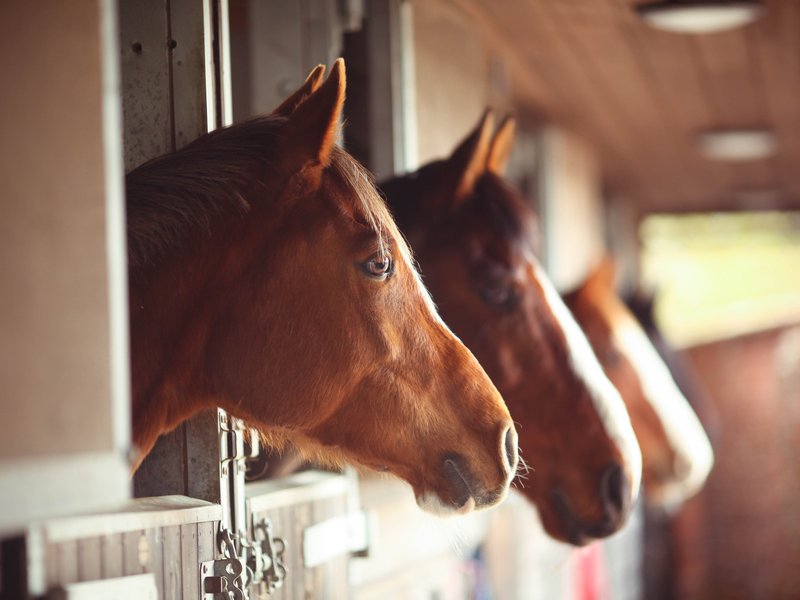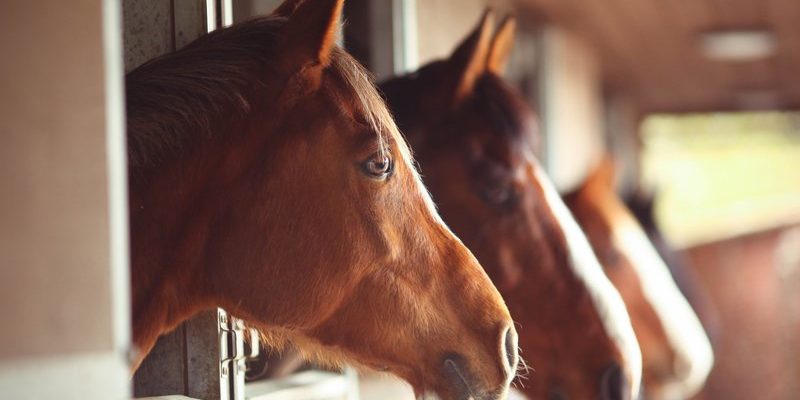
Understanding a horse’s intelligence can feel like peeling an onion—layer by layer, some aspects are clear, while others require deeper thought and observation. From their ability to bond with humans to their impressive problem-solving skills, horses showcase a different kind of smarts that many people may overlook. So, let’s dive into what makes horses tick and explore their cognitive abilities in a way that’s easy to digest—just like a friendly chat over coffee.
The Cognitive Skills of Horses
Honestly, horses have some fascinating cognitive skills that highlight their intelligence. They may not solve math problems or recite Shakespeare, but they possess a kind of intelligence that’s practical and instinctual. Horses can learn from their environment, adapt to new situations, and communicate with one another. This adaptability is essential for their survival in the wild and their relationships with humans.
For instance, horses have excellent memories. They can remember faces of humans and other animals for years. Imagine riding a horse for the first time—if they had a good experience, they’ll likely remember you and react positively the next time you meet. On the flip side, if a horse had a negative experience, that memory could lead to hesitation or fear around similar situations in the future.
Another aspect of their cognitive skills is their ability to solve problems. Horses can learn how to navigate obstacles or perform tasks, especially when food is involved. If a horse learns that walking through a certain gate leads to a treat, they’ll remember that. It’s a simple example, but it shows that their decision-making is driven by past experiences and rewards.
Social Intelligence and Emotional Understanding
Horses are incredibly social animals, and their intelligence shines through in their interactions with one another. They communicate using body language, vocalizations, and even facial expressions. You might be wondering how this relates to their intelligence. Well, understanding and responding to social cues require a high level of awareness—both of themselves and their surroundings.
Take, for example, the way horses form bonds with each other and with humans. They thrive in herds and develop hierarchies based on relationships. This social complexity means that horses can gauge emotions, read moods, and understand when another horse is feeling anxious or aggressive. Imagine a horse sensing its buddy is in trouble; they might approach or stick closer to provide comfort or support.
Moreover, studies have shown that horses can even recognize human emotions. Researchers noted that horses could distinguish between smiling and angry faces, responding accordingly. When a horse sees a person with a friendly smile, they might approach more readily, while they could be hesitant or wary of someone with an angry expression. This ability to interpret emotional cues highlights their impressive social intelligence.
Learning Styles and Behavioral Responses
You might be surprised to know that horses can learn in various ways, and understanding their learning styles can be helpful, especially if you work with them. Horses are often categorized as visual learners, meaning they respond better to visual signals than auditory ones. That’s why teaching a horse using clear, consistent body language is essential. They learn from watching and observing, just as kids might pick up skills by watching their peers.
Interestingly, horses can also exhibit operant conditioning, which simply means they learn from the consequences of their actions. For instance, if a horse performs a behavior that leads to a reward—like a treat or praise—they’re more likely to repeat that behavior in the future. This is similar to how we learn in everyday life; if we get a reward for something, we tend to do it again. The key is consistency and patience.
Also, it’s crucial to understand that a horse’s behavior can be influenced by their past experiences. A horse that has faced trauma may respond differently to training or new environments. This responsiveness highlights their learning process and emphasizes the need for understanding, patience, and care in how we interact with them.
Problem-Solving Abilities in Horses
When it comes to problem-solving, horses can be surprisingly skilled. They don’t just wait for help; they actively look for solutions when faced with challenges. This might include situations like figuring out how to open a gate or navigating a tricky obstacle course. Let’s take a closer look at what this problem-solving looks like in action.
For instance, if a horse encounters a closed gate, rather than just standing there confused, they might try pushing it with their nose or looking for a way around. This ability to experiment and try different approaches shows a level of cognitive engagement that’s impressive for an animal. They often learn from trial and error, which is a fundamental part of human problem-solving too.
Additionally, some studies have shown that horses can even demonstrate “insight learning.” This means they can connect the dots and realize that previous knowledge can apply to new situations. For example, if a horse learns how to open one type of latch, they might later use that knowledge to figure out a different latch on a different gate. This kind of mental flexibility is a strong indicator of intelligence.
Communication and Understanding of Human Cues
Let’s not forget how well horses can understand us, which is a crucial part of their intelligence. While they might not speak our language, they communicate in ways we can learn to recognize and understand. Horses often respond to vocal cues, body language, and even subtle changes in our energy.
For instance, a horse might respond more positively to a calm, soothing voice rather than a loud, harsh tone. They are sensitive creatures and pick up on the emotions and intentions of people. If you’re feeling anxious or stressed, your horse might sense that and act nervously as well. It’s almost like they have a sixth sense for our feelings.
Moreover, training a horse involves teaching them to respond to specific cues or commands, much like teaching a dog to sit or stay. Over time, horses learn to associate these cues with actions or behaviors. This process of learning is a dance between horse and human, where communication becomes key to building trust and understanding.
The Importance of Environment and Social Structure
Lastly, the environment in which horses live plays a significant role in their cognitive development and behavior. Horses are herd animals, meaning they thrive in social groups. Being around others allows them to engage and learn from one another, honing their social intelligence.
In the wild, horses face different challenges that require quick thinking and adaptability. They must navigate their surroundings, find food, and protect themselves from predators. This necessity for survival develops their cognitive skills in ways that are closely tied to their natural instincts.
In a domestic setting, horses can lose some of these natural behaviors if kept in isolation. That’s why it’s essential for horse owners to create environments that promote social interactions—like having multiple horses together or providing opportunities for mental stimulation through various activities.
Ultimately, a horse’s intelligence is shaped by a combination of its social needs, environment, and individual experiences. When we understand these factors, we can better appreciate the cognitive world of horses and the richness of their behavior.
So, how smart is a horse? Pretty smart, actually! Their cognitive abilities, emotional understanding, problem-solving skills, and social intelligence all paint a picture of a creature that’s much more than meets the eye. Horses have unique ways of learning and communicating that reflect their adaptability and intelligence.
Treating horses with empathy and understanding allows us to form deeper connections and improve our interactions with them. Whether you’re a rider, trainer, or simply an admirer of these incredible animals, recognizing their intelligence can lead to more rewarding experiences. Just remember, horses are not just pets—they’re complex, thinking beings with a lot to teach us about connection, trust, and emotional awareness.

